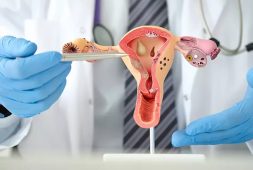
Detecting the very early stages of Alzheimer’s disease (AD) can be very difficult to detect. That’s because any changes in the brain can begin an entire decade or even more before any memory or thinking problems actually occur.
Initial symptoms can easily be mistaken for ordinary forgetfulness. However, recent research into the gut microbiome has opened up a promising avenue for early diagnosis, when interventions and treatments are most effective.
Published on June 14 in Science Translational Medicine, a groundbreaking study has uncovered a potential link between the gut microbiome and Alzheimer’s disease. This research focused on individuals in the earliest phases of the illness, those who exhibited no apparent cognitive decline but were at risk. The study aimed to identify distinctive characteristics that could pave the way for earlier diagnosis and intervention.
A postdoctoral research associate at Washington University School of Medicine in St. Louis and lead study author Aurora Ferreiro, PhD, says, “Previous studies have shown that the gut microbiomes of persons with clinical Alzheimer’s disease [when impairment of memory and cognition is apparent] are different from those of persons who are cognitively healthy.”
She adds, “We asked how early in the progression of AD can those gut microbiome differences be detected — and the answer is quite early. The potential utility of the microbiome in early screening for preclinical AD and AD risk is supported by these results.”
More Evidence of the Gut-Brain Connection
The study involved 164 cognitively normal participants, aged between 68 and 94. Researchers conducted extensive screening using PET and MRI brain scans and cerebrospinal fluid analysis to look for the presence of amyloid beta and tau proteins, known hallmarks of Alzheimer’s disease, even in its preclinical stages. Alarmingly, nearly a third of the participants (49 individuals) displayed indications of early Alzheimer’s disease.
The researchers delved further into the participants’ gut microbiomes by analyzing stool samples. Surprisingly, despite all subjects reporting similar diets based on food questionnaires, those with signs of amyloid beta and tau accumulations in the brain displayed distinct gut bacteria compositions compared to their “healthy” counterparts.
In addition, Dr. Ferreiro shares that her team identified seven species of bacteria that “significantly improved our ability to predict whether an individual had preclinical AD or not.”
She also stressed that the research team is not claiming that particular or certain bacteria increase the risk of Alzheimer’s. The findings only point to a connection between gut microbiome composition and Alzheimer’s disease.
Gut Microbiome Tests Could Possibly Aid in Alzheimer’s Diagnosis
The findings suggest a compelling connection between gut microbiome composition and the presence of AD, highlighting the potential for gut microbiome tests in assessing an individual’s risk of developing dementia.
“A person flagged [for AD] based on gut test results might be referred to follow-up screening for established AD biomarkers [such as tau and amyloid beta clumps],” she says.
Clinical associate professor of medicine in the division of gastroenterology at the University of Washington, Christopher Damman, MD, calls the possibility of improving Alzheimer’s diagnosis through gut data “exciting.”
Dr. Damman, who was not involved in the study, said, “Tests using CSF [cerebrospinal fluid] and imaging are good, but if you can make them better, then you’ll be able to more accurately identify people who are likely to go on to develop Alzheimer’s, so this is a step in the right direction.”
According to the Alzheimer’s Association, early diagnosis gives a better chance a patient will benefit from various treatments. These include medications and lifestyle changes, like stopping smoking, exercising more, controlling blood pressure, and staying mentally and socially active.
“Once AD is symptomatic, there is usually neurodegeneration involved, and it’s difficult to come back from that,” says Dr. Ferreiro.
Dr. Beau Ances, a coauthor of the study and a professor of neurology at Washington University School of Medicine, envisions a future where a simple stool sample could potentially reveal an individual’s heightened risk of developing Alzheimer’s disease.
“It would be much easier and less invasive and more accessible for a large proportion of the population, especially underrepresented groups, compared with brain scans or spinal taps,” said Dr. Ances in a press release.
Can Gut Change Lower Alzheimer’s Risk?
However, it remains uncertain whether microbial changes in the gut are a consequence of Alzheimer’s disease or if they could be influencing the progression of the disease itself. Since the study participants maintained similar diets, no conclusive evidence regarding the impact of diet on dementia risk could be derived.
According to the National Institute on Aging, there is currently no proof that specific foods can prevent Alzheimer’s disease or age-related cognitive decline. Nonetheless, they acknowledge that dietary choices may affect the aging brain’s cognitive function.
The Alzheimer’s Society suggests that a diet rich in fruit, vegetables, cereals and low in red meat and sugarcould help reduce dementia risks.
“One could speculate that if you can identify a diet that moves these microbiome markers in a positive way, that could then be beneficial, but that’s way beyond what the study tells us,” says Damman.
As researchers delve further into this fascinating field, the study authors have initiated a five-year follow-up investigation to ascertain whether the observed differences in the gut microbiome are a cause or a consequence of the early brain changes associated with Alzheimer’s disease.
This ongoing research may ultimately hold the key to early diagnosis and intervention, offering hope to millions affected by this devastating condition.



